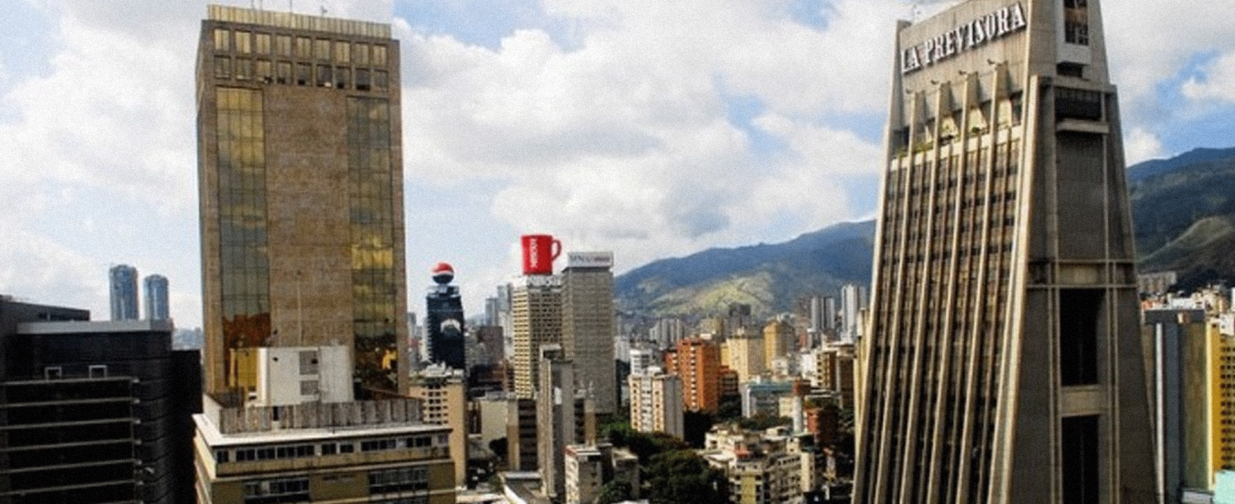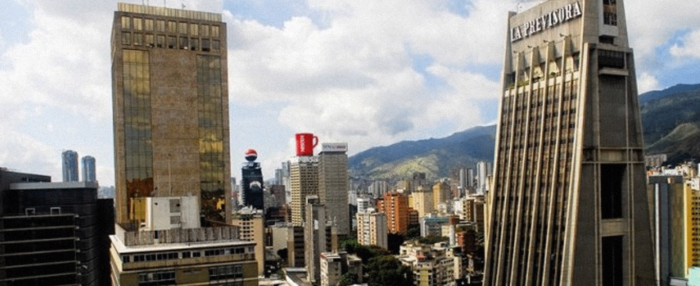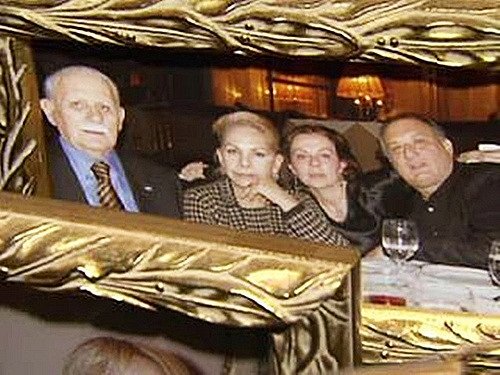

The investor, now exiled in the United States, seized the company in the vertiginous 2009, the year of the banking mini-crisis. By an intricate operation of legal and financial engineering through Panama, with Spanish advisers and some 'shelf companies', he made sure that the purchase would produce profits even if his property was expropriated and he was forced to flee abroad.
|
Getting your Trinity Audio player ready...
|
The banking mini-crisis of late 2009 affected a group of small banks (Canarias, Bolívar, Confederado and Banpro) in the hands of investors, who considered themselves close to the Chavez regime until then. Ricardo Fernández Barrueco, called the Tsar of Mercal (food market), stood out among all of them, and Pedro Torres Ciliberto was second, an always controversial businessman who is usually linked, by a friendship relationship, with the former vice president and former minister of defense, José Vicente Rangel.
Within twelve months, that business group —formed on the go from individual initiatives that intertwined— was involved in a booming campaign of company acquisitions. Not only the four banks above indicated had been under the control of the group, it had also paid the down payment for the telecommunications operator Digitel, and was about to complete the purchase of Banco Nacional de Crédito (BNC) of José María Nogueroles. Julio Herrera Velutini, who had just acquired Helm Bank and Banco Real, also participated in this operation.
That assault on the financial sector was disrupted in the end by a political obstacle, the nature of which remains unknown but is anecdotally attributed to the grudge that Superintendent of Banks Edgar Hernández Behrens had against the business group. He was supported by his brother-in-law, former captain and former governor Ronald Blanco Lacruz, to actively prevent the closing of those transactions.
The official version established that the purchase of the banks had been carried out with cross-ownership among them, many times without being validated with exchanges of securities for shares. Even worse, these entities were giving massive funds, without the corresponding guarantee considerations to companies linked to the new shareholders.
On November 19, 2009, the then Minister of Finance Ali Rodriguez Araque announced the open intervention of the banks, but a week later, he announced the closure and liquidation of two of them. In the end, they gathered together in the critical mass for the new state bank Banco Bicentenario.
On December 11, President Hugo Chávez himself announced the nationalization of Seguros La Previsora, then owned by Pedro Torres Ciliberto. On December 19, a warrant of arrest was issued against him, and all his assets were confiscated under judicial order. In May 2010, based on evidence that he was a fugitive, proceedings were initiated to request his extradition from USA, where he still lives.
The nationalization of La Previsora ??was legalized by a decree of March 2010, ordering the merger of its operations with the recently created Bolivariana de Seguros, which did not materialized, and another decree of August of the same year, whereby Chavez declared the shares of the company "of public interest".
Now the leaked papers of the Panamanian law firm Mossack Fonseca (MF) show evidence that the nationalization and exile might not been a surprise for Torres Ciliberto but that he might even counted on them when he negotiated the purchase of Seguros La Previsora.
Founded in 1914, La Previsora is one of the most important and renowned brands in the sector in Venezuela. Last December, under state management, the company ranked fifth among 48 companies in the monthly ranking prepared by the Superintendence of Insurance Activity, with a little above 17,000 million bolivars in premiums charged.

In the first decade of the 21st century, the majority shareholding of Seguros La Previsora ??was under the control of Freeway Global Ltd, a company incorporated in November 2000 in the jurisdiction of the British Virgin Islands. Freeway belonged then to Juan Carlos Maldonado, member of the family from the state of Táchira that was the founder of La Previsora —also owner of the famous farm Hato El Alto del Apure, until its confiscation— with a group of partners that included Alonso Maldonado Blaubach and Alberto Quintana Benshimol.
In 2005, Freeway controlled around 65% of Seguros La Previsora. However, Maldonado continued to purchase shares. That allowed him to have nearly 90% of the company in 2009, as well as other legal entities of the financial conglomerate of La Previsora, through which he managed to control Banco Confederado in 2007, a regional entity of Margarita acquired by the Saleh family.
Maldonado, who is the president and owner of Iberoamericana de Seguros since 2011, effectively left Freeway Global in May 2008, although his closed relatives and friends remained on the board of directors until it was sold to Pedro Torres Ciliberto.
In July 2009, the 50,000 shares of Freeway —a company that has in turn the majority shareholding of Seguros La Previsora— do no longer belong to the Bearer and pass to Lionesse Real Estate Corporation. Lionesse is a company of Pedro Torres Ciliberto, registered in Panama in 2008 by Mossack Fonseca, with directors provided by the firm itself. Lionesse paid on June 15, 2009, with Venezuelan debt securities denominated in US dollars, of Freeway shares.
As indicated below, this was not the key piece that MF put on the table to build the legal-financial structure from which Torres Ciliberto would take over La Previsora. Though it is one of the reasons explaining why an MF file contains important documents about that transaction.
In the papers of Mossack Fonseca it is verified that on July 6, 2009, when Torres Ciliberto assumed control over La Previsora, two other changes took place in Freeway Global. First, it remained with one director only, Jesús Alberto Abilahoud, a renowned business partner of Torres; second, its new address was in the Galician capital of A Coruña.
A year later, Abilahoud disappeared from the Board of Directors. He is replaced by Manuel Mariño González, a Galician businessman with investments in the fishing industry of the state of Sucre (northeast coast of Venezuela). In March 2010, Mariño signed a certificate for 50,000 shares of Freeway, whereby he ratified that the shares are from Lionesse Real Estate Corporation.
What was the reason of the Galicianization of Freeway i.e. the majority shareholding of Seguros La Previsora?
The key is in the incorporation of a new player in the plot, José Fraga.
Fraga, a Spanish lawyer and adviser, is a nephew of the legendary Manuel Fraga Iribarne, founder of the Popular Party (PP) of Spain and a long-time president of the Xunta de Galicia. In October 2009, magazine América Economía introduced him as leader of a group of Spanish investors that, together with the Venezuelan Julio Herrera Velutini, intended to buy an important participation of Banco Nacional de Crédito (BNC) from José María Nogueroles. Fraga, as the publication anticipated, was to have "a strictly financial position in the structure of the bank. The commitment is to enter and retire two years after."
But before that operation, which never consolidated, and outside the radar range of the business press, Fraga had entered into a consulting contract with Lionesse. The contract, dated June 29, 2009, and with the "Highly Confidential" sign, provides that Fraga, on behalf of his company FAEB Consulting, will carry out a project to design a legal structure to accompany the investment of Lionesse in Seguros La Previsora.
That June 2009 —just days before Torres Ciliberto acquired La Previsora, and just five months prior the banking crisis to come, the document continues listing the particular conditions of the project. It refers to one that is particularly striking: the legal and tax structure arising out of the consulting should protect "the economic interests of LIONESSE REAL ESTATES and its shareholders from a potential expropriation of LA PREVISORA by the Venezuelan government ".
Furthermore, the document foresees that the corporate framework assembled for the shareholding control of La Previsora ??will be internationalized. Although it does not rule out options like Malta or the Netherlands, it specifically mentions the jurisdiction of the United States of America, therefore, "study the possible emigration of the shareholders of LIONESSE REAL ESTATES to that country, as a result of the expropriation and, if applicable, expulsion from Venezuela of some of the shareholders mentioned."
Fraga estimates his fees in approximately 550 million bolivars, payable by 70,000 Euros cash and the transfer of 12% of the shares of Freeway, the coveted company holding La Previsora.
In March 2012, José Fraga appeared in the records of Tortola, British Virgin Islands, as the sole director of Freeway Global Ltd.
Whether it was his intuition or access to privileged information, the truth is that not even a year later, the prediction fulfilled: in January 2010, La Previsora ??had been expropriated and Torres Ciliberto was in exile in the USA.
In the meantime, the execution of the legal and tax structure that Fraga promised from Spain had to be completed.
In this stage Mossack Fonseca came to play a role. Neither Torres Ciliberto nor his corporate fronts Lionesse or Freeway appear as clients of MF.
Mossack Fonseca’s formal client is a law firm in Coral Gables, Miami: González & Rodríguez PL.
That law firm is the settlement agent in Florida of the Torres Picón Foundation Corp, a legal entity of Torres Ciliberto, where his wife, Blanca Cecilia Picón de Torres, their son, Pedro Torres Picón, and even one of the partners of the law firm, Humberto Luis Rodríguez, participate as directors.
In 2010 - when La Previsora ??had already been nationalized in Venezuela - the law firm Rodríguez & González asked Mossack Fonseca’s office in Miami to obtain "for its client" a company in Panama dating from 2008. Finally, MF offered a company named Brookline Business S.A., a shelf company (companies that MF incorporates in different jurisdictions and stores on their shelves to then offer them to its clients in a timely manner with an ‘a la carte’ date of incorporation).
In an e-mail dated November 10, 2010, Irene Andreve, from the "Corporations" department of Mossack Fonseca, confirmed Olga Santini, head of the Mossack Fonseca office in Miami, the "acquisition" price of Brookline Business S.A.: "$ 2,660.34 for the representative and $ ,3048.75 for the professional."
Incidentally, the law firm González & Rodríguez PL, which provides services to Torres Ciliberto in Miami, will register a Brookline Business C.A. in Florida.
From
the acquisition of Brookline Business C.A. in Panama for an unidentified
customer, extraordinary things began to happen. As of December 2008, a series of
real estate in Venezuela was sold at ridiculous prices to Brookline Business -
the recently incorporated Panamanian company -, presumably by Pedro Torres
Ciliberto, but on behalf of different legal entities. For example, Empresa
Técnica Urbanizadora C.A. sold 110 hectares (271.81 acres) of land in Guamito,
state of Barinas, for Bs. 70,000; Bienes 910 C.A. sold a plot and a house in the
Pueblo Viejo area in El Morro de Puerto La Cruz, state of Anzoátegui; Industria
La Raisa 3 C.A. sold a plot in the exclusive Oripoto area, in the southeast of
Caracas; Grupo Empresarial Tamanaco C.A. sold a plot of land on Calle Londres in
Las Mercedes area of Caracas; and Organización TPF sold a
3,159-sq m
(34,003.19 sq ft) lot in Margarita.
People closed to Torres Ciliberto signed as representatives of the selling companies: Luz Marina Gutiérrez, Yolanda Salazar Palma, and María Inmaculada Vivas Rivas.
Two apartments of The Four Ambassadors Condominium, on Brickell Avenue, Miami, also become the property of Brookline Business, which sold them in February 2014.
Through an agreement signed on September 13, 2012, Vladimir Gessen assigned to Brookline Business his 50% stake in the company Diario de CCS LLC, a company registered in Florida just a month before.
But the most notable event in the history of the successful Panamanian company Brookline Business is confirmed when the 50,000 shares of Freeway Global Ltd, holder of the majority shareholding in Seguros La Previsora, appear in its name. There are the same 50,000 shares in the British Virgin Islands that Manuel Mariño certified in 2010 in an Incumbency Report, as property of Lionesse Real Estate Corporation.
On July 7, 2009, attorney George Allen - a member of the Board, and one of the directors that Mossack Fonseca usually appoints for his shelf companies- signed in the name of Brookline Business C.A. a "Loan Participation Agreement" with Banreal Holding SLU, a company registered in Madrid, Spain, in the name of which Pedro Torres Ciliberto acts as "Joint Administrator".
For this contract, entered into in Panama, Brookline Business sold to Banreal Holding SLU of Torres Ciliberto, the 50,000 shares of Freeway Global, which in turn controls the majority of Seguros La Previsora. The seller, Brookline Business, also agreed to lend to the buyer, Banreal, the amount of 730 million dollars, amount in which the transaction is valued.
In other words, the prodigy of legal and financial engineering made Torres Ciliberto buy from Brookline Business the shares that he himself had previously bought from Maldonado and transferred to Brookline Business through a concept that does not appear in the papers of Mossack Fonseca.
Note that, according to the records of the British Virgin Islands, this occurred just a day after Jesus Alberto Abilahoud, partner of Torres Ciliberto, was in charge of the Board of Freeway Global Ltd.
The contract establishes a 10-year term, with a possible 2-year extension, to amortize the loan, which could eventually be paid by capitalizing the debt. But a very ad hoc clause explicitly warns that "in the case of the expropriation of La Previsora ??by the Government of Venezuela, the Lender shall be paid" (i.e. Brookline Business) "the compensation it charges for such expropriation."
An attempt was made to arrange an interview for this report with Pedro Torres Ciliberto, through his lawyers and his secretary in Caracas. Torres did not respond to the request.
When Vice President Delcy Rodríguez turned to a group of Mexican friends and partners to lessen the new electricity emergency in Venezuela, she laid the foundation stone of a shortcut through which Chavismo and its commercial allies have dodged the sanctions imposed by Washington on PDVSA’s exports of crude oil. Since then, with Alex Saab, Joaquín Leal and Alessandro Bazzoni as key figures, the circuit has spread to some thirty countries to trade other Venezuelan commodities. This is part of the revelations of this joint investigative series between the newspaper El País and Armando.info, developed from a leak of thousands of documents.
Leaked documents on Libre Abordo and the rest of the shady network that Joaquín Leal managed from Mexico, with tentacles reaching 30 countries, ―aimed to trade PDVSA crude oil and other raw materials that the Caracas regime needed to place in international markets in spite of the sanctions― show that the businessman claimed to have the approval of the Mexican government and supplies from Segalmex, an official entity. Beyond this smoking gun, there is evidence that Leal had privileged access to the vice foreign minister for Latin America and the Caribbean, Maximiliano Reyes.
The business structure that Alex Saab had registered in Turkey—revealed in 2018 in an article by Armando.info—was merely a false start for his plans to export Venezuelan coal. Almost simultaneously, the Colombian merchant made contact with his Mexican counterpart, Joaquín Leal, to plot a network that would not only market crude oil from Venezuelan state oil company PDVSA, as part of a maneuver to bypass the sanctions imposed by Washington, but would also take charge of a scheme to export coal from the mines of Zulia, in western Venezuela. The dirty play allowed that thousands of tons, valued in millions of dollars, ended up in ports in Mexico and Central America.
As part of their business network based in Mexico, with one foot in Dubai, the two traders devised a way to replace the operation of the large international credit card franchises if they were to abandon the Venezuelan market because of Washington’s sanctions. The developed electronic payment system, “Paquete Alcance,” aimed to get hundreds of millions of dollars in remittances sent by expatriates and use them to finance purchases at CLAP stores.
Scions of different lineages of tycoons in Venezuela, Francisco D’Agostino and Eduardo Cisneros are non-blood relatives. They were also partners for a short time in Elemento Oil & Gas Ltd, a Malta-based company, over which the young Cisneros eventually took full ownership. Elemento was a protagonist in the secret network of Venezuelan crude oil marketing that Joaquín Leal activated from Mexico. However, when it came to imposing sanctions, Washington penalized D’Agostino only… Why?
Through a company registered in Mexico – Consorcio Panamericano de Exportación – with no known trajectory or experience, Joaquín Leal made a daring proposal to the Venezuelan Guyana Corporation to “reactivate” the aluminum industry, paralyzed after March 2019 blackout. The business proposed to pay the power supply of state-owned companies in exchange for payment-in-kind with the metal.